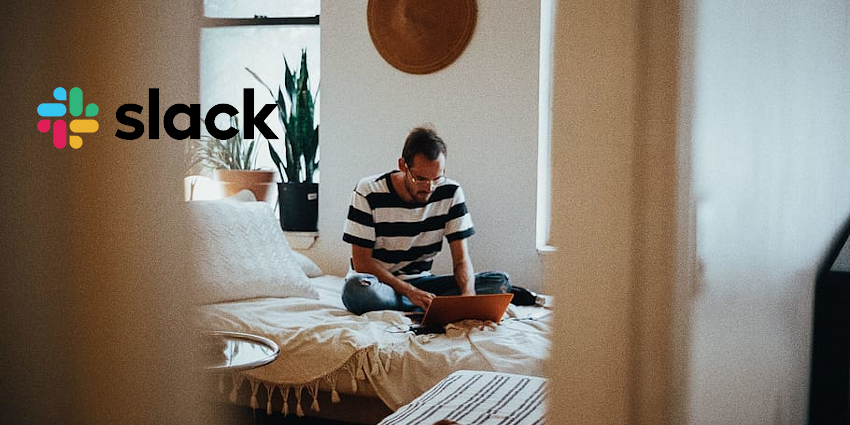New research from messaging platform developer Slack, reveals its UK user-base likes working from home during the COVID-19 period. According to Slack, its UK user-base values late starts, finishing early, and taking more frequent time to rest. The novel Coronavirus shifted millions across the UK into a new era, the work-from-home era. For many, this solution is not a short-lived one, but rather a permanent one.
Employees across the UK now face a balancing act, and they’re left finding smarter and more productive ways to work while juggling chores, homeschooling, and more – on top of their responsibilities at work. Slack surveyed over 2,000 UK-based workers, the majority of which, (Eighty-four-percent) said working from home’s impacted their communication with colleagues since lockdown started to ease the spread of the virus.
Sixty-eight-percent of those surveyed said they found it difficult to communicate effectively with their teammates, with 25 percent saying they experienced feelings of loneliness whilst working from home. A Slack spokesperson told me in a statement, business leaders have to adjust to the new normal of employees flexing, their, well, flexibility, adding:
“To adjust to the new normal, business leaders and managers need to shift their mindsets from measuring success by the hours that employees clock in each day, and focus on the quality of that work and output”
Slack also found, on average, UK workers clock in 48 minutes later than usual. They now clock in around 9:30 AM. Thirty-six percent of those surveyed said they take more breaks than they did in an office. Some employees said they’ve taken advantage of working at home by sleeping through their usual commutes.
They now wake up at 8:03 AM – a full 67 minutes later than the usual 6:55 AM time UK workers wake during an average workweek, according to Slack. Thirty-four-percent admitted they don’t make “As much of an effort to wash up and dress,” with 32 percent telling Slack, they wear loungewear all day long. A mere six percent revealed they only dress from the waist-up, which is quite relatable if you ask me.
When you also consider that 55 percent of UK workers find that their productivity and motivation is slipping when working from home, it is clear that businesses need to put the right tools in place to enable solid communication and collaboration to keep teams aligned and retain a positive workplace culture – even in a remote office.
This is a fascinating look into something we rarely gain insight into. Now that more individuals work from home, we will soon start gaining perspective into some of the most intimate routines. What we will also likely learn in the not-so-distant future is that employees crave this kind of freedom and flexibility.
We’re already getting hints at that on Twitter and through user-collected data from unified communications and collaboration vendors. Last month, Slack announced it had launched its UK data residency, which lets users choose where they’d like to host their data. As of today, Slack employs 25+ employees in its London-based offices, showing it hopes to compete with the UK’s championship of Microsoft Teams.







